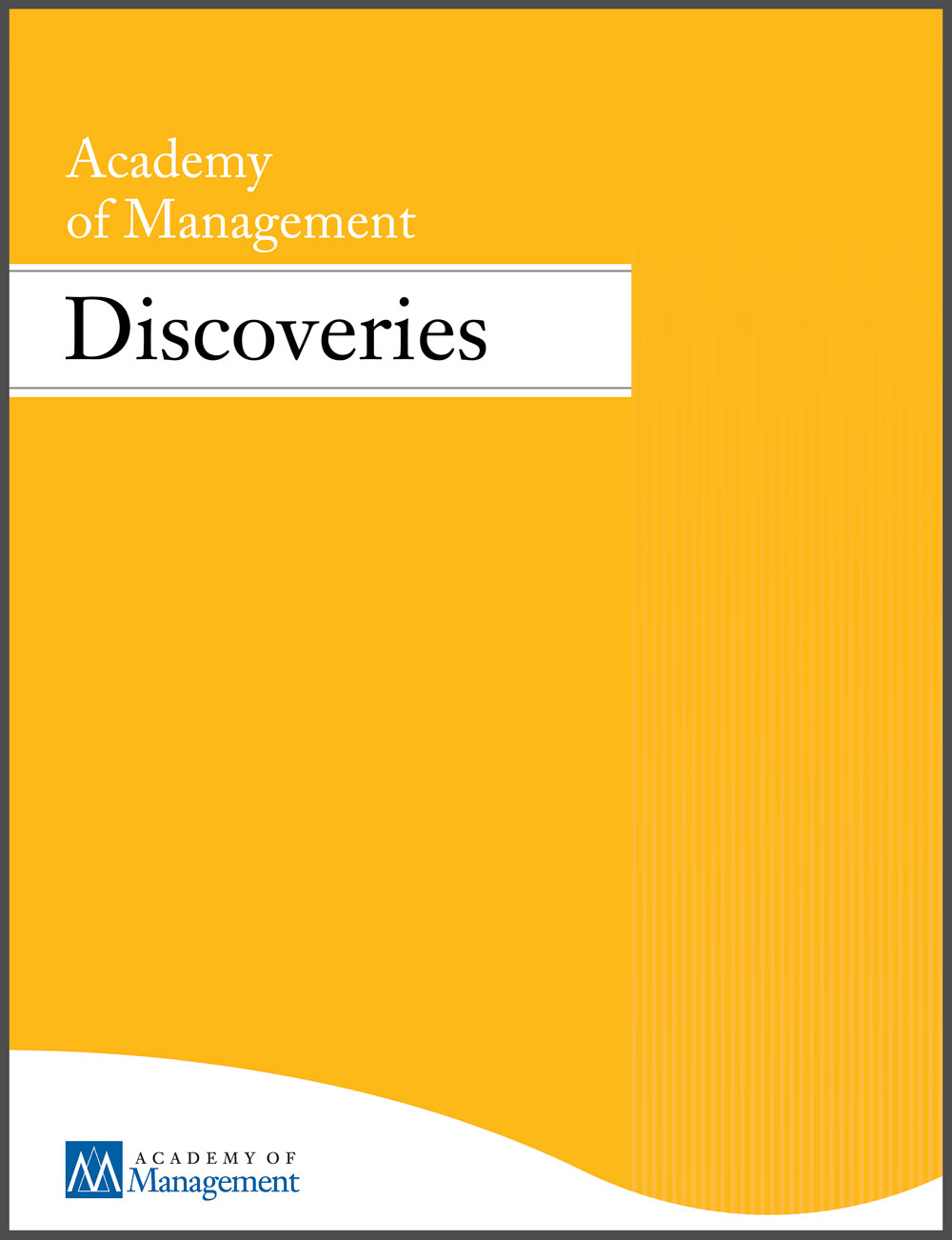How Do Social Media Contribute to the Emergence of “Extreme” Events? The Rise of Tour Paris 13: The “Sistine Chapel” of Street Art
IF 4.8
2区 管理学
Q2 MANAGEMENT
引用次数: 0
Abstract
Extraordinary events are exceptional and leave lasting memories in participants’ minds and sometimes in those of a broader audience. Digital technologies, and social media in particular, seem to be playing a growing role in the occurrence of such events. We analyze the physical interactions between actors and their digital exchanges via social media, which shaped the emergence of an event that developed around an unexpectedly successful, self-directed street art phenomenon. Interviews, onsite observations, and statistical analyses of social media traces reveal patterns in which the physical event and its digital counterpart recursively nurtured each other. These factors operated as a complex dissipative system in which independent actors interacted within and across physical and digital boundaries. Physical activities influenced digital activities, which in turn affected artistic creation and fueled the public’s eagerness to participate, transforming the event into a large art happening. Empirical observations reveal that the digitalization of the art show shaped the emergence of the event and stabilized it by placing it in a state of dynamic equilibrium. The event’s evolution, measured by social media activity, followed a Power Law, indicative of a phenomenon induced by multiple interdependent interactions. This signifies the existence of a statistically extreme, rare event.社交媒体如何促成“极端”事件的出现?巴黎13之旅的兴起:街头艺术的“西斯廷教堂”
非凡的事件是特殊的,在参与者的脑海中留下持久的记忆,有时在更广泛的观众的脑海中。数字技术,尤其是社交媒体,似乎在此类事件的发生中扮演着越来越重要的角色。我们分析了演员之间的身体互动和他们通过社交媒体进行的数字交流,这些互动塑造了一个围绕意外成功、自我导向的街头艺术现象而发展起来的事件的出现。采访、现场观察和对社交媒体痕迹的统计分析揭示了物理事件和数字事件递归地相互促进的模式。这些因素作为一个复杂的耗散系统运作,在这个系统中,独立的行动者在物理和数字边界内外相互作用。体育活动影响了数字活动,数字活动反过来影响了艺术创作,激发了公众的参与热情,将活动变成了一场大型艺术活动。实证观察表明,艺术展的数字化塑造了事件的出现,并通过将其置于动态平衡状态来稳定它。通过社交媒体活动来衡量,这一事件的演变遵循幂次定律,表明这是一种由多种相互依存的互动引起的现象。这表明存在一个统计上极端的、罕见的事件。
本文章由计算机程序翻译,如有差异,请以英文原文为准。
求助全文
约1分钟内获得全文
求助全文
来源期刊

Academy of Management Discoveries
MANAGEMENT-
CiteScore
10.00
自引率
3.20%
发文量
40
期刊介绍:
The mission of AMD is to publish phenomenon-driven empirical research that theories of management and organizations neither adequately predict nor explain. Data on these poorly-understood phenomena can come from any source, including ethnographic observations, lab and field experiments, field surveys, meta-analyses, construct validation research, and replication studies. AMD welcomes exploratory research at the pre-theory stage of knowledge development, where it is premature to specify hypotheses, and which generates surprising findings likely to stimulate and guide further exploration and analysis. This research must be grounded in rigorous state-of-the-art methods, present strong and persuasive evidence, and offer interesting and important implications for management theory and practice. Read the Discoveries FAQs.
 求助内容:
求助内容: 应助结果提醒方式:
应助结果提醒方式:


